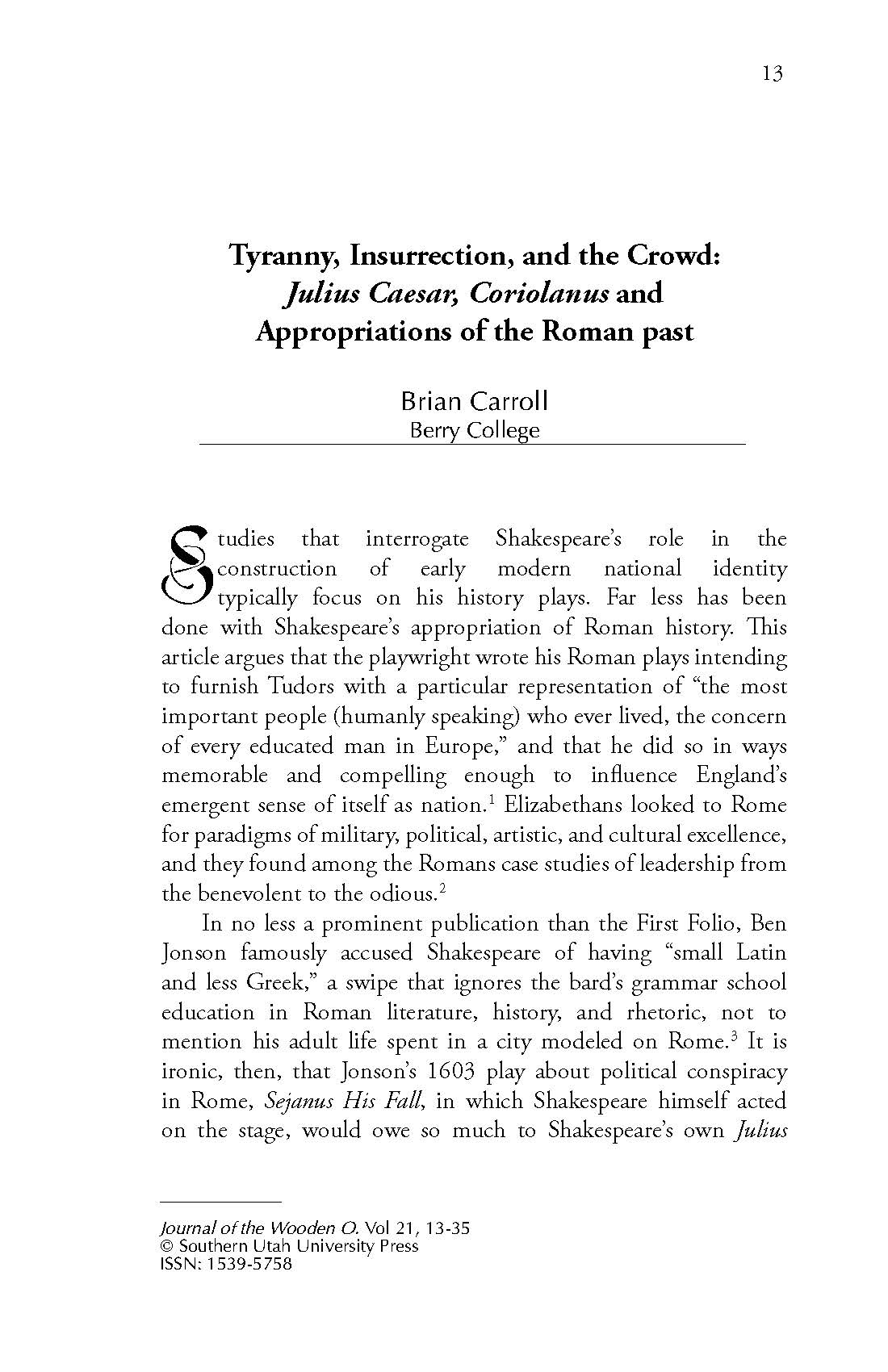Tyranny, Insurrection, and the Crowd Julius Caesar, Coriolanus and Appropriations of the Roman past
Main Article Content
Abstract
Studies that interrogate Shakespeare’s role in the construction of early modern national identity typically focus on his history plays. Far less has been done with Shakespeare’s appropriation of Roman history. This article argues that the playwright wrote his Roman plays intending to furnish Tudors with a particular representation of “the most important people (humanly speaking) who ever lived, the concern of every educated man in Europe,” and that he did so in ways memorable and compelling enough to influence England’s emergent sense of itself as nation.1 Elizabethans looked to Rome for paradigms of military, political, artistic, and cultural excellence, and they found among the Romans case studies of leadership from the benevolent to the odious.2
